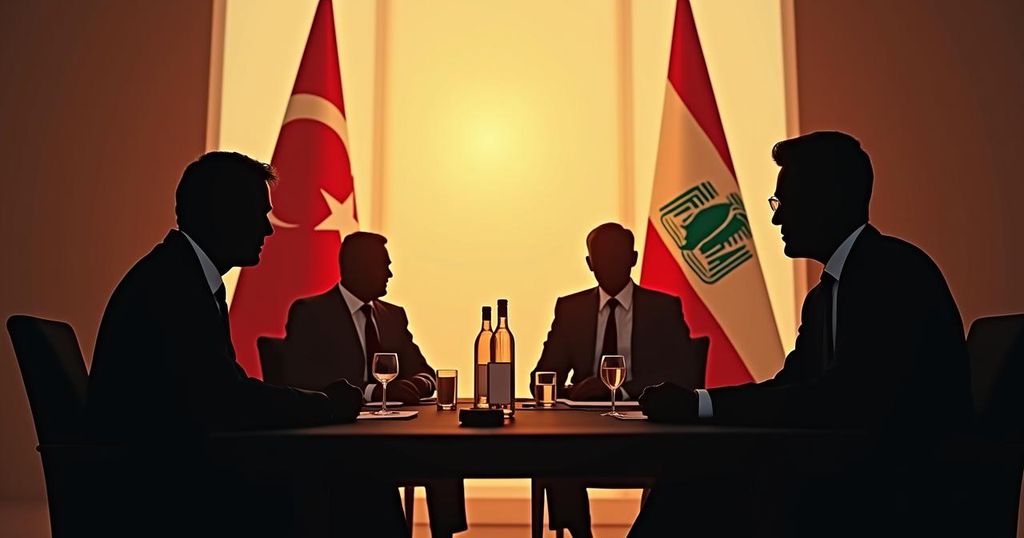On October 9, 2024, Jordan’s Foreign Minister Ayman Safadi delivered a letter from King Abdullah to Egyptian President Abdel Fattah El Sisi, emphasizing cooperation between Jordan and Egypt regarding regional developments. Safadi’s recent visit to Lebanon highlighted solidarity and talks focused on addressing humanitarian crises and potential ceasefires in the context of ongoing unrest linked to Israeli hostilities. Both nations reaffirmed their commitment to Lebanon’s sovereignty and a unified approach to the Palestinian cause and broader regional stability.
On October 9, 2024, during a significant diplomatic engagement in Cairo, Jordan’s Deputy Prime Minister and Foreign Minister, Ayman Safadi, conveyed a letter from His Majesty King Abdullah to Egyptian President Abdel Fattah El Sisi. The correspondence emphasized the necessity for ongoing cooperation and dialogue between Jordan and Egypt regarding recent regional developments. Safadi’s visit to Lebanon on October 7, 2024, underscored his commitment to solidarity in light of Royal directives, during which he engaged with prominent Lebanese officials including caretaker Prime Minister Najib Mikati, Parliament Speaker Nabih Berri, and Army Commander General Joseph Aoun. Subsequent discussions in Cairo with Egyptian Foreign Minister Badr Abdel Aty highlighted collective efforts to address the Israeli actions in Gaza, aimed at alleviating the dire humanitarian crisis affecting civilians and ensuring the steady flow of humanitarian assistance. Both foreign ministers stressed the urgency of achieving a ceasefire in Lebanon and the need to uphold United Nations Security Council Resolution 1701, which relates to the situation in the region, while also emphasizing support for Lebanon’s institutions and electoral processes. During a joint press conference, Safadi reiterated that Jordan’s diplomatic initiatives, guided by King Abdullah, intend to halt the aggression against Gaza, the West Bank, and Lebanon—efforts aligned with preventing an escalation into broader regional conflict. He asserted that Jordan and Egypt maintain unified stances on crucial regional matters, explicitly stressing that the red lines established by Egypt regarding Gaza are similarly embraced by Jordan. Both nations expressed their strong opposition to the coerced displacement of Palestinians, whether internally or into neighboring countries, and criticized Israeli strategies that could forcibly displace residents from northern Gaza, declaring their collective determination to reject such actions. Moreover, Safadi highlighted the risks posed by Israel’s military actions in Lebanon, noting a refusal to observe ceasefire initiatives. He affirmed Jordan’s commitment to maintaining Lebanon’s sovereignty and recognized the urgency for humanitarian provisions in light of Lebanon’s significant displacement crisis, now exceeding 1.2 million people, and condemned Israeli assaults impacting Lebanese civilians in Beirut. He emphasized Jordan’s decision to refrain from involvement in conflicts on behalf of external actors such as Iran or Israel, affirming: “Our primary focus is on the security of Jordan and the safety of our people.” Minister Abdel Aty echoed Egypt’s support for Jordan’s custodianship over holy sites in Jerusalem and commended the Jordanian government’s role in safeguarding the Arab essence of the city. These discussions mark a critical juncture in Jordan and Egypt’s diplomatic engagement in addressing regional tensions and humanitarian challenges.
The article presents a summary of recent diplomatic interactions between Jordan and Egypt focused on solidifying support for Lebanon amidst escalating regional tensions, particularly related to Israeli actions in Gaza. Both nations are actively coordinating their foreign policies to navigate complex political and humanitarian crises affecting Lebanon and Palestinians. This context highlights the importance of regional coalitions and unity in addressing shared challenges, along with the historical roles both countries play in mediating international and inter-regional conflicts, specifically in relation to Israel and Palestine.
In conclusion, the reaffirmation of support from Jordan and Egypt for Lebanon underscores the importance of regional cooperation in addressing pressing humanitarian concerns and maintaining stability. The diplomatic efforts led by Deputy Prime Minister Safadi and Egyptian Foreign Minister Badr Abdel Aty reflect a unified stance against external aggressions, advocating for humanitarian aid, sovereignty, and regional peace. By reinforcing their positions on critical issues such as the Palestinian cause and the situation in Lebanon, both nations are poised to continue their collaborative efforts in promoting stability within the region.
Original Source: jordantimes.com






